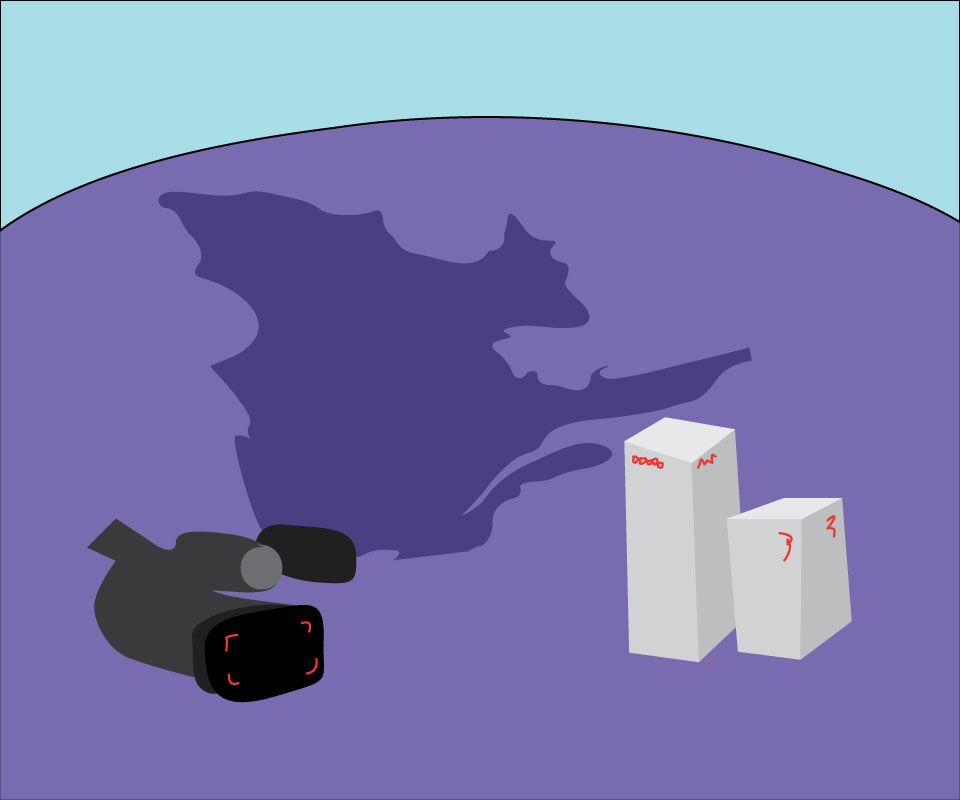Exploring how the city’s French language hinders it from integrating with larger society
“Montreal? I’ve never heard of it.”
That’s what my cousin from the UK told me when I met her for the first time. She knew I lived in Canada, but the only Canadian city she knew was Toronto.
However, Montreal isn’t a stranger to the world—it’s Canada’s second biggest city. It’s the second largest primarily French-speaking city in the world, after Paris.
We have Just For Laughs, the largest international comedy festival in the world, held in Montreal every July. Dishes like poutine are known to taste better here than they do elsewhere. We’ve also got bagels and smoked meat, that are uniquely made here.
Despite its prominence, pop culture shies away from Montreal. It’s not commonly referred to as the best city in Canada. It’s not a cultural hub for food, sports or music. Why not? What does Montreal fail to offer that other major cities do?
It’s not a question of what the city doesn’t have. It’s what we do—French is what makes the city different, unlike any other North American city. Our official language makes us stand out from others, but it’s also the reason we’re excluded. Living in Montreal and in Quebec, there are things we don’t have access to because of language restrictions.
You won’t find some popular restaurant chains here, and I’m assuming it’s because their businesses don’t offer services in French. Red Lobster, Popeyes, and Nando’s are just a few of the restaurants that are English-based, and nowhere to be found in Quebec. The amount of money they would have to invest for translation purposes and whether these restaurants are in demand from Francophones is another issue to tackle. Not to mention, Quebec’s language laws, like Bill 101, which requires businesses to make French the most predominant language when offering their services.
In sports, we have the NHL’s Montreal Canadiens as a proud part of the city’s culture. The hockey team encourages sportsmanship, and brings people of different ages and backgrounds together to support a representative of Montreal. But back in 2012, Francophones protested outside of the Bell Centre for the exclusion of French-speakers in the Habs management––they had an English-speaking coach at the time and barely any Francophone players on the team, according to CBC News. Montreal is the only city in the NHL league that had to fight for language rights; the other teams are from American and Canadian cities, and are unable to relate to language being an integral part of a city’s culture.
Within the NBA, the only Canadian team in the league is the Toronto Raptors. Previously, the Vancouver Grizzlies existed but was merged into the Memphis Grizzlies. There are investors who’ve expressed interest to the NBA Commissioner in an expansion for a Montreal-based team, and even though the Raptors play an annual preseason game here, the NBA just isn’t French. Yet, according to Sportsnet, a Montreal team in the NBA would most likely be successful, based on a “market attractive index.”
In terms of local talent, Montreal is home to few popular artists. Sure, Leonard Cohen and Celine Dion are highly respected and have received notable achievements, and both called Montreal their home at a time in their life. But today, you probably won’t hear their music topping the charts. Popular artists in this generation are people like Drake, who shared his spotlight with Toronto and is credited for generating $440 million of the city’s tourism industry. Montreal, on the other hand, is lacking a comparable figure. Francophone artists seem to be more promoted than Anglophone artists. We see them given the opportunity to be on French shows like La Voix and Star Académie––opportunities the English-based artists wouldn’t have. The top two Montreal playlists on Spotify are French, with more than half the songs in French.
Pop culture is hard to define, but food, sports and music are just a few components of it. It’s more or less the same in different North American cities, but Montreal isn’t a part of western pop culture. I’m not saying this city lacks culture—I’m saying French makes it harder for us to integrate into larger society.
Graphic by Ana Bilokin




